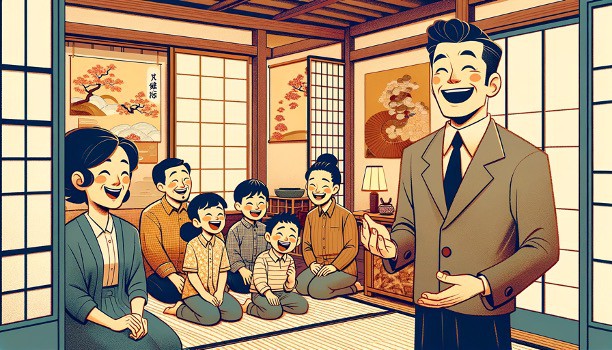Unleashing the Power of Dad Jokes in Japanese Marketing
Japan’s love for ダジャレ (Da-ja-re) or 親父ギャグ (Oyaji-gyagu), known most commonly as “Dad Jokes” in English, shows that simple wordplay and humour can be powerful in marketing.
The best part about these kinds of puns beyond their simplicity, is how memorable they can be – no matter whether they make you laugh or cringe.
My initial encounter with humour of the cheesy kind, started in my Japanese studies journey, with simple jokes like スイカ安いか (are the watermelons cheap?) or ニューヨークで入浴する (take a bath in New York), as I listened to beginner-level podcasts.
Upon relocating to Japan back in 2014, I remember in the early days after my initial arrival, my Japanese friends loved how simple マット (Matto) was, likening it to words like マットレス (Mattress) or ドアマット (Doormat)。
Even my full name マシュー (Matthew pronounced “Mashuu”) didn’t escape the antics, think マッシュルーム (Mushroom)、マッシュポテト (Mash potato) and マシュマロ (Marshmallow) as just a few.
However, it wasn’t till they realised the link to ちょっと待って (chotto matte or wait a moment), that ちょっとマット (chotto matto) was born. And boy did it stick!
Famous Songs
But perhaps enough with the lame names, a good dad joke in Japan, can also be a powerful and unforgettable marketing play.
I recently posted on LI about the name ラムミートテンダー (‘Lamb Meat Tender’), a pun on Elvis Presley’s classic ‘Love Me Tender’, is a perfect example. It’s easy to understand, remember, and relevant to the restaurant’s offerings.
This clever wordplay not only makes people want to visit the restaurant, but it also effectively communicates the restaurant’s value proposition – delicious food and a pleasant dining experience.
To enjoy the harmony of lamb, love and Elvis – check it out in Kudanshita!
Famous People
I used to frequent Shibuya quite often in my early days of living in Tokyo in 2014-15, as my language school was also located on the Hikarie side. And to my delight, that area was also home to one of the better-tasting and larger-sized burger shops. These days, however, you can find many good burger spots located across Tokyo.
Aptly named ウーピーゴールドバーガー (Whoopi Goldburger), which of course featured the signature special burger herself. But also included other contenders for the title like the ケビンベーコンバーガー (Kevin Bacon Burger) or the サラジェシカバーガー (Sarah Jessica-Burger) in katakana pronounced Japanese “Parker” actually sounds very similar to “burger”.
To get your next taste of fame – in true burger style – check it out around Shibuya!
Landing the Next Joke
Don’t expect your Japanese Dad-joke to land with everyone, I remember when I tried to introduce myself as ちょっとマット (chotto matto) to various people during my life in Japan I got one of the 4 common reactions:
🤣 おもろい – hilarious
🙄 さむい – lame
😕 そうなんだ? – ok then …
🤔 どういう意味? – what the f … are you talking about?
However, where it did shine was in making it easy for people to remember me, and so the next time I came across them whether it be at an event, someone’s party or even one of the local bars I used to hang out at, I would usually get a comment like ….
“Ahhhhh – chotto matto – nice to see you again” or something to that effect – difficult to forget, and therefore great for networking and marketing myself both socially and professionally.
So if you’re brainstorming a bunch of names for your next big restaurant, business or startup – test them with some of your Japanese friends first and see what reaction you get. That would be a good initial test of how well people will welcome or even remember your brand.
Final Thoughts
In the world of marketing, a good name is important for building brand identity and creating a lasting impression.
Just like my fond memories of Lamb Meat Tender or Whoopi Goldburger linger even after a year away from Tokyo, a well-chosen brand name can become synonymous with the brand’s offerings and values.
To create a name that communicates the value proposition well, consider these key elements:
👉 Clarity: The name should be clear and easy to understand.
👉 Memorability: A catchy name will stick in people’s minds.
👉 Relevance: The name should be relevant to the brand’s offerings and values.
👉 Differentiation: A unique name will help the brand stand out from the competition.
Just like a well-timed dad joke can make you smile, a well-chosen brand name can capture attention, convey a clear message, and leave a lasting impression on consumers.
By thinking about these key elements, businesses can create a strong brand identity that resonates with their target audience and drives lasting success.
Need help brainstorming a cool name for your startup, finding product-market-fit or bringing it to market be it in Japan or otherwise – feel free to connect with me via LinkedIn.

